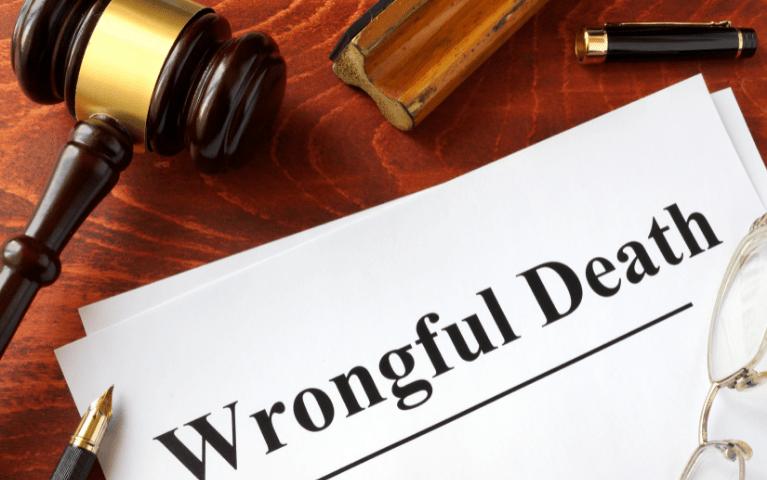If a tragic death occurs due to the negligent actions of another person, there may be criminal charges brought against the responsible party.
But, there are also civil legal remedies that can provide monetary compensation to the surviving family members.
When someone dies due to the negligence or misconduct of someone else, the responsible party can be sued for wrongful death.
And, wrongful death claims may not only be made against people but against organizations like a business or a hospital as well.
But, who can sue for wrongful death? What is considered wrongful death? We’ll take a look at those questions and more below.
[joli-toc]
What Is Wrongful Death?
Wrongful death law allows the surviving family members and other affected parties to seek justice on behalf of a loved one who recently passed away due to someone else’s negligence.
Not all deaths, even accidental deaths, will qualify for a wrongful death lawsuit.
The cause of death of the deceased person has to meet specific criteria for a wrongful death suit to be filed.
A wrongful death could be caused by many factors, such as:
- Work-related accident
- Car Accident
- Bike Accident
- Truck Accident
- Medical malpractice
- Medical negligence
- Defective product
- Criminal acts
- Drunk driving accident
- Drug-related accident
- Elder abuse
Who Can File a Wrongful Death Lawsuit
Wrongful death law varies from state to state, but every state allows a wrongful death claim to be filed by someone in the immediate family.
Most of the time, the spouse of the deceased will file a wrongful death lawsuit.
If the deceased didn’t have a spouse, an adult child could bring the lawsuit.
And if the person who died was a child, the parents of the child can file a wrongful death lawsuit on behalf of the deceased child.
Some states allow a domestic partner or a civil union to file a wrongful death suit on behalf of their partner.
If the victim wasn’t married and didn’t have a partner, an adult child can file a wrongful death claim.
In some states, a personal representative for the deceased has to file a wrongful death lawsuit.
A personal representative is usually an individual or a company responsible for managing the estate of the deceased.
The personal representative may also be known as the “executor” of the estate.
Along with inventorying and distributing the estate assets, the personal representative is sometimes responsible for filing a wrongful death lawsuit.
Who May Be Sued for a Wrongful Death?
A wrongful death lawsuit may be brought against a wide range of people, companies, employees, or even a government agency.
For example, if someone was killed in a car accident involving a drunk driver, a wrongful death action can be brought against the drunk driver, their employer, the persons who sold, served, or gave alcohol to the impaired driver, or the owner of the business where the alcohol was served.
Types of Damages in a Wrongful Death Claim
Filing a wrongful death lawsuit gives your family the ability to seek compensation for the economic and non-economic losses you have suffered, and it provides an opportunity for you to seek justice on behalf of your loved one.
With the help of an experienced wrongful death attorney, you can fight to hold the responsible party accountable for their negligent, reckless, or careless actions.
If you file a wrongful death lawsuit, you may be entitled to:
- Funeral expenses
- Burial expenses
- End-of-life medical expenses
- Loss of the decedent’s life
- Loss of Companionship
- Loss of Consortium
- Loved one’s pain and suffering
- Loss of income / earning capacity
You Only Have Two Years To File a Wrongful Death Claim
Fatal accidents are chaotic and life-changing, but you need to be sure to act quickly.
In most states, you only have two years from the date of death to file a claim.
There are very few exceptions to the statute of limitations, even for the death of minor children.
If exceptions do apply to your case, there are typically still limitations, and claims usually can’t be filed after five years of your loved one’s death.
This is why you should speak with a wrongful death lawyer as soon as you can.
Seeking Legal Help
If a loved one has passed away due to someone else’s negligence, you should seek legal advice on how to pursue a wrongful death case.
Skilled personal injury attorneys will understand the laws surrounding these cases and help you take the proper course of action.
Mabra Law Firm can help you during this challenging time and will make sure you get the financial compensation you deserve.
To schedule your Free Consultation with the Mabra Law Firm, fill out the form below.




